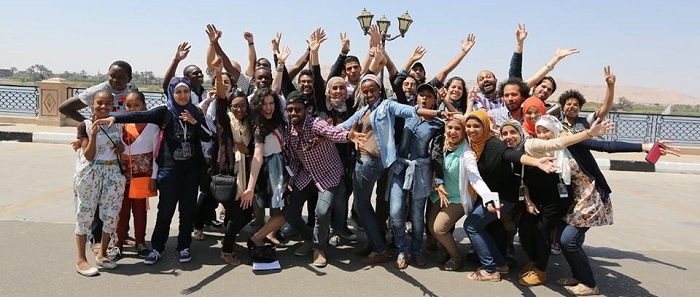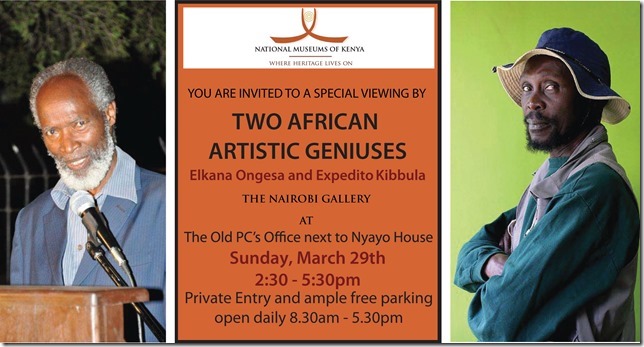By Ogova Ondego
Published February 10, 2002
 When the high profile marriage of Kenya’s Maasai cultural ambassador, the late Tom ole Surum and American Betsy Turner ended in separation four years later in 1994, OGOVA ONDEGO writes, Turner blamed it on ole Surum’s inability to express romance to her.
When the high profile marriage of Kenya’s Maasai cultural ambassador, the late Tom ole Surum and American Betsy Turner ended in separation four years later in 1994, OGOVA ONDEGO writes, Turner blamed it on ole Surum’s inability to express romance to her.
Shortly before his death in 1998, ole Surum admitted: “here are things I don’t have time for, like this nonsense of ‘weet this and sweet that’ all the time. I also have no time for holding hands. Those things are important to an American.”
It was possible, ole Surum said, that Turner could have been attracted to the romanticised Maasai Warrior stereotypical image than to Surum the person.
Kevin, a 30-year-old man, publicly embraces and kisses his wife, telling her how beautiful she is and how much he loves her To him, love goes hand in hand with touching, holding hands and hugging, his Africanness notwithstanding. Kevin believes love is about walking on the beach hand-in-hand, or sitting on the porch to watch the moon rise in the evening. To him, love is also about candle-lit dinners and connubial bliss afterwards.
Though sounding like a curiosity, Kevin does not mind opening doors for his wife, going on hikes with her and driving in the countryside together.
Kevin confesses that his father has just cautioned him against romancing his wife in public arguing that it is “unAfrican†to do so. Thus his father, like the late Surum, appeares to give credence to the claim that African men are cold and unromantic. But are they?
RELATED: The Place of Flowers in African Cultures
Wanjiru, 24, says, “Most African men I know are unromantic. To them, kissing, holding hands, and pledging undying love to their lovers is anathema. I find them quite boring as they want to behave like their fore-fathers who lived hundreds of years ago.”

Saying women enjoy being romanced, Wanjiru argues, “I expect my man to notice my grooming and to compliment me. But, sadly, African men do not usually notice or appreciate the good appearance of their women. Do they know that we women can do anything for a man who notices and appreciates us?”
And she is not through with her salvos at men yet: “Even if you teach them to peck you on the cheek and to say good things to you in public, they just will not do it. You just can’t change the nature of black men no matter what you do. They believe they will be wasting money if they bought their lovers flowers and cards.”
Wanjiru, however, admits that women may be partly to blame due to their unpredictability: “They put off men who want to be nice to them. There was this man who bought his wife a bouquet of flowers hoping to rekindle their romance but instead of appreciating the gesture, the wife retorted: “Didn’t you have anything better to do with your money instead of wasting it on weeds?” she says.
 Otieno disagrees that African men are cold. “We, the modern generation of men, are quite romantic unlike our predecessors who married for reasons other than love,” says the 20-year-old university student. “I have saved and looked forward to this Valentine for a long time so I may lavish all my attention on my girlfriend.”
Otieno disagrees that African men are cold. “We, the modern generation of men, are quite romantic unlike our predecessors who married for reasons other than love,” says the 20-year-old university student. “I have saved and looked forward to this Valentine for a long time so I may lavish all my attention on my girlfriend.”
Otieno, however, will not hold hands or kiss his girlfriend in public because, he says, it would offend other people.
Irene, 28, says African men are :romantic in their own way” and that it is unfair for any one to want them to “act like Americans in love.”
“African men respond to love in their own culturally-appropriate manner,: she says. “Open shows of passion and affection are not part of African culture. Our men may find it difficult to express their love but they really care about their partners.”
Pastor John Gichinga of Nairobi Baptist Church concurs: “African men may be romantic but they find it difficult to express this publicly as many Westerners readily do. Yes, African men are vocal and passionate. But only in the bedroom–not in public.”
The Pastor says that all humanity is the same. That wives of both black and white men complain their husbands are rigid and non-verbal. Their sentiments are similar; that their men keep their feelings to themselves.
Saying that men need to be sensitised on being more expressive in their demonstration of love, Gichinga argues: “We all need affirmation of what is good in all of us. Even men need affirmation of love from women.”
The pastor, who studied in the United States, contends that African men need to be taught how to express tender feelings to their lovers since love was never expressed openly in Africa.
“The world over, women are more verbal in expressing their feelings. If we men want them to appreciate us more, we should communicate with them in the way they want,” he says. “Africans must strike a balance between their cultural values and those of the West for the benefit of everyone.”
The pastor contends that the mass media are socialising humanity into having common values and seeing things in a more uniform and universal way although we are neither Western nor traditional Africans.
“We are getting into a dilemma. A man who is used to bringing a kilo of sugar or meat to his wife as an expression of love will find it difficult to begin bringing her flowers or candy. That is why individual couples should agree on what ways are suitable for expressing love for each other,” he says.
RELATED: 2010 Watch List of Heritage Sites in Danger Released
Many of the women who seek counseling from professionals usually complain that their men are passionless, a counselling psychologist says.
“They say the only time their men display tender feelings toward them is when they want sex,” says th counsellor.
Explaining why African men may be perceived as being un-romantic, sociologist John Njoka argues that Africans do not marry out of romance.

“If they do not show affection, it should not be taken so seriously for that is the way they have been socialised,” he says.
And cultural anthropologist ABC Ocholla-Ayayo agrees: “African marriages were not love-based. That was why it was possible for parents to arrange marriages for their children, sometimes even before they were born and therefore did not know each other. Widow inheritance should be seen in this light. Were it love-based, then it is unlikely that any man would have wanted to marry a woman he hardly ever knew.”
Dr Del Chinchen, an American specialising in African anthropology, contends that in many cases in African marriages, love grew out of the relationship as wives cooperated with their husbands in their day-to-day affairs. This was the case among the Igbo (Nigeria), Logoli (Kenya), Nyakyusa (Tanzania), and Toro (Uganda).
RELATED: Why African Artists Opt for Illegal Immigrant Status in the West t
Then, marriage was an arrangement between communities rather than between a man and a woman. “These,” he says, “are some of the factors that have contributed to African men being considered aloof in love relationships.”





